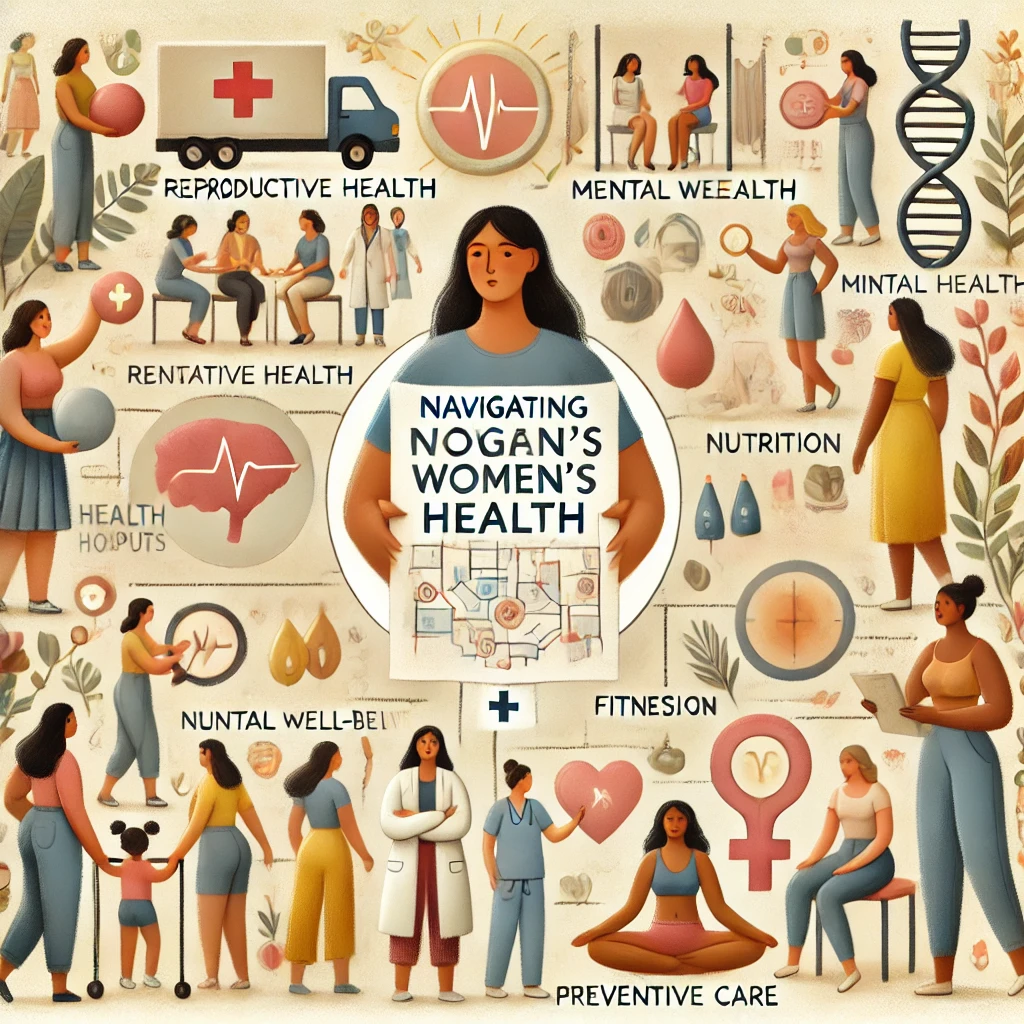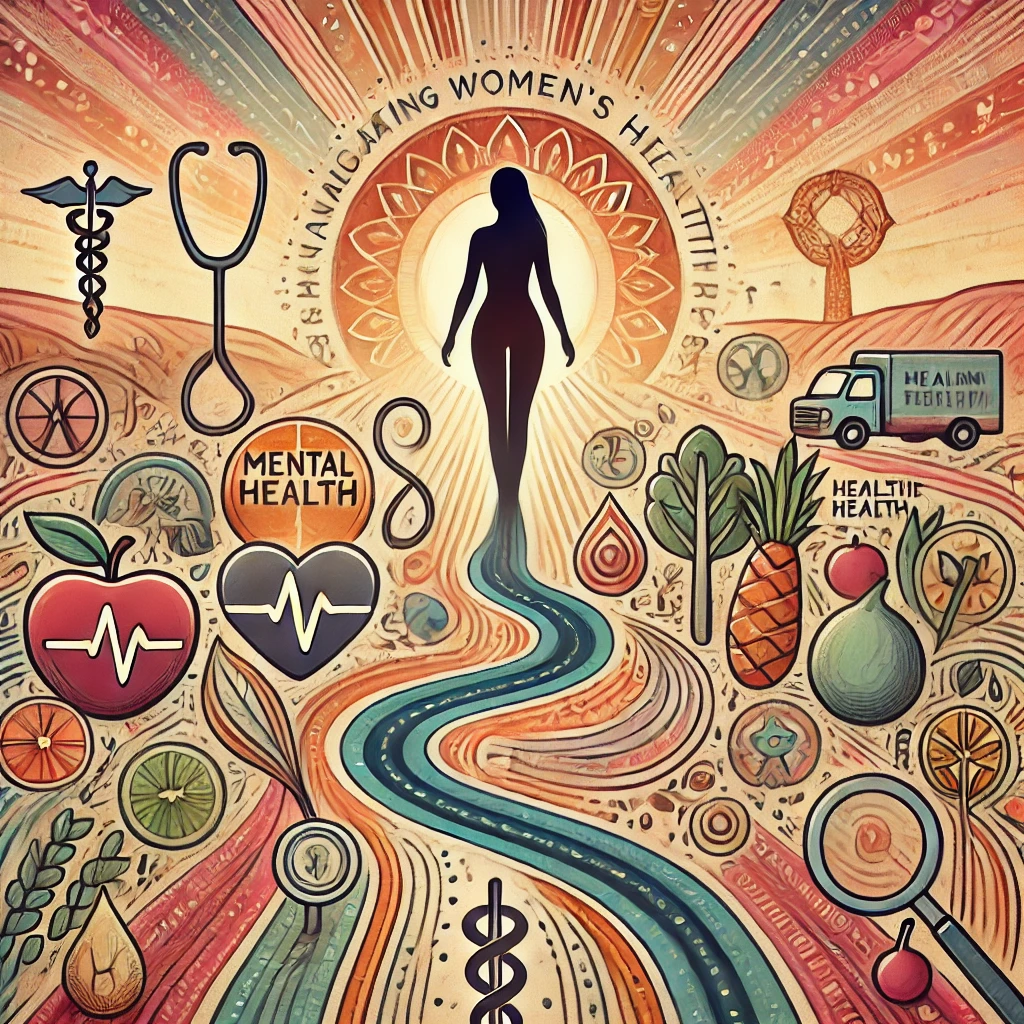Table of Contents
Navigating Women’s Health is crucial to ensuring well-being throughout different stages of life. Women face unique health challenges that require specialized knowledge and care. From adolescence to menopause, each phase comes with its own set of health considerations. This article will explore key aspects of women’s health, providing valuable insights, important statistics, and practical tips for managing and improving health outcomes.
Understanding the Basics of Navigating Women’s Health
Women’s health encompasses a broad range of issues that are unique to women. This includes reproductive health, menstrual cycles, pregnancy, and menopause. Understanding these basics is crucial for making informed decisions about health care.
Reproductive Health: Key considerations during the reproductive years.
Menstrual Health: Managing menstrual disorders and their impact on daily life.
Pregnancy: Important aspects of prenatal and postnatal care.
Statistics: According to the World Health Organization (WHO), complications during pregnancy and childbirth are a leading cause of death among women in developing countries.
The Importance of Preventive Health Care
Preventive health care is vital in detecting and managing potential health issues before they become severe. Regular check-ups, screenings, and vaccinations play a significant role in maintaining health.
Screenings: Regular mammograms, pap smears, and bone density tests are important.
Vaccinations: Key vaccines every woman should consider.
Lifestyle Choices: Diet, exercise, and mental health impact overall well-being.
Tip: Schedule regular health screenings and stay informed about the recommended frequency based on age and risk factors.
Navigating Women’s Health
Reproductive health is a central aspect of women’s health, encompassing a wide range of issues from fertility to contraception and sexual health.
Fertility Awareness: Understanding ovulation cycles and fertility windows.
Contraceptive Options: Exploring different methods and their effectiveness.
Sexual Health: Importance of safe practices and regular STI testing.

Managing Menopause and Post-Menopausal Health
Menopause marks a significant transition in a woman’s life, often accompanied by various physical and emotional changes. Managing menopause effectively is essential for maintaining quality of life.
Symptoms of Menopause: Common symptoms and their management.
Hormone Replacement Therapy (HRT): Pros and cons of HRT.
Post-Menopausal Health: Strategies for maintaining bone health and cardiovascular health post-menopause.
Mental Health Considerations
Mental health is a critical component of overall well-being. Women are more likely to experience certain mental health conditions, such as anxiety and depression, due to hormonal changes and societal pressures.
Depression and Anxiety: Understanding the signs and seeking help.
Stress Management: Techniques for managing stress effectively.
Support Systems: A strong support network is important in maintaining mental health.
Quote: “Mental health is not a destination, but a process. It’s about how you drive, not where you’re going.”
Nutrition and Exercise for Women’s Health
A balanced diet and regular exercise are foundational to good health. Women’s unique nutritional needs vary across different life stages.
Nutritional Needs: Key nutrients essential for women’s health.
Exercise Regimens: Tailoring exercise plans to individual needs and capabilities.
Weight Management: Tips for maintaining a healthy weight through diet and exercise.
Navigating Health Care Systems
Understanding how to navigate healthcare systems is essential for accessing the right care at the right time.
Finding the Right Provider: Tips for choosing a primary care provider and specialists.
Health Insurance: Understanding coverage and out-of-pocket costs.
Patient Advocacy: How to advocate for your health needs within the system.
Women’s Health and Aging
Ageing brings about various changes in a woman’s body. Staying informed about these changes and how to manage them can significantly improve the quality of life in later years.
Bone Health: Importance of calcium and vitamin D.
Cardiovascular Health: Managing risk factors for heart disease.
Cognitive Health: Strategies for maintaining brain health as you age.
Table: Comparison of bone density loss rates in women over 50 who exercise regularly versus those who do not.
Resources for Women’s Health
Access to reliable information and support networks is crucial for making informed health decisions.
Online Resources: Trusted websites and apps for women’s health information.
Support Groups: Benefits of joining a community of women with similar health experiences.
Books and Podcasts: Recommended readings and listening for deeper insights into women’s health.
For more detailed insights and guidance, visit our dedicated section on https://cameronfriscia.com//Navigating Women’s Health/).
Conclusion
Navigating women’s health is an ongoing journey that requires attention to various physical, mental, and emotional aspects. By staying informed and proactive, women can significantly improve their quality of life at every stage. What steps are you taking to prioritise your health? Explore more articles on our blog to continue your journey toward better health.
What are the key areas of focus in women’s health?
Women’s health encompasses various aspects, including reproductive health, mental well-being, nutrition, fitness, and preventive care. Understanding these areas helps in making informed decisions about one’s health.
How can I stay proactive about my reproductive health?
Staying proactive involves regular gynecological exams, understanding contraceptive options, and being aware of menstrual health. It’s also essential to discuss family planning and any concerns with a healthcare provider.
What mental health issues commonly affect women, and how can they be managed?
Common mental health issues include anxiety, depression, and stress, often influenced by hormonal changes, life stages, and societal pressures. Management includes therapy, lifestyle changes, and in some cases, medication.
What are the recommended nutritional guidelines for women at different life stages?
Nutritional needs vary by age. For instance, calcium and vitamin D are crucial for bone health during menopause, while iron is vital during menstruating years. A balanced diet rich in fruits, vegetables, and lean proteins is recommended.
How often should women undergo preventive screenings?
Preventive screenings vary based on age and health history. Common screenings include mammograms, Pap smears, bone density tests, and blood pressure checks. It’s essential to follow your healthcare provider’s recommendations.

